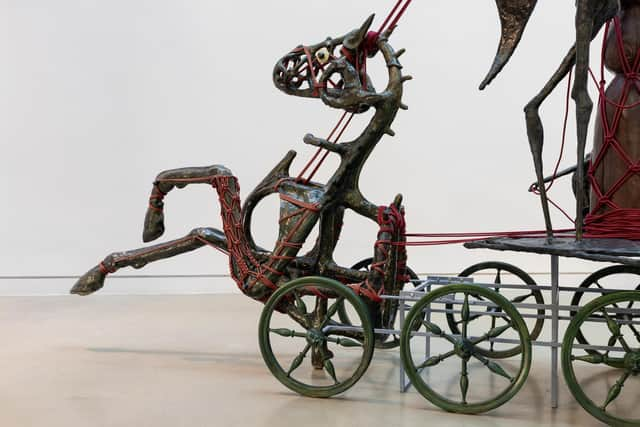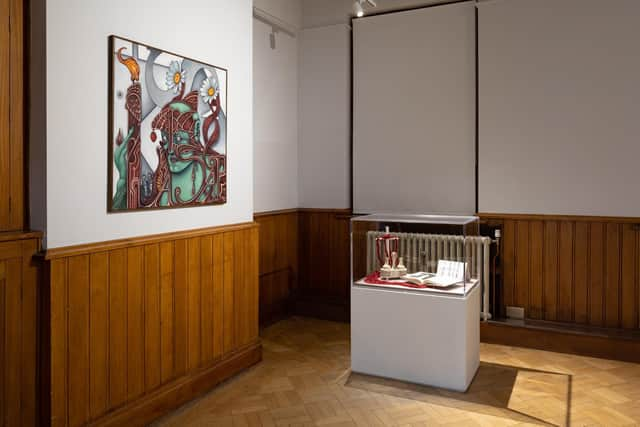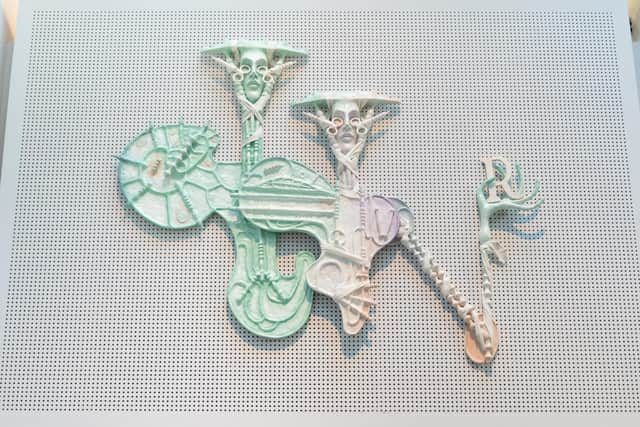Justin Fitzpatrick's Alpha Salad art exhibition at the Tetley in Leeds explores food, decadence and consumption
A new exhibition of work by artist Justin Fitzpatrick opened earlier this week at the Tetley in Leeds.
Alpha Salad is Fitzpatrick’s first major solo show in a public gallery and it explores the themes of food, consumption and decadence.
Advertisement
Hide AdAdvertisement
Hide Ad“The show is looking at food in general but using food to talk about lots of other things,” says Fitzpatrick who was born in Dublin in 1985 and now lives in Montargis, just south of Paris in France. “I’m using food as an initial metaphor and branching out in different directions.”


Against the current backdrop of widespread food poverty, environmental concerns about the damaging effects of industrial meat farming and an emphasis on so-called ‘clean’ eating in some sections of society and on social media, the exhibition feels very timely and resonant.
“It’s not that I specifically wanted to respond to those ideas but food really represents so much more than it is, so all those things come into play,” says Fitzpatrick. “The work is not a direct response to those themes, but it is implied. And there is also a lot in the show to do with aesthetics and taste.”
The exhibition uses the unique spaces of the Tetley, a contemporary art gallery housed in the art deco headquarters of the former brewery, to present the narrative journey of what we eat as it makes its way from the soil to the table.
Advertisement
Hide AdAdvertisement
Hide Ad“Because of the layout of the Tetley with the central atrium and then eight rooms, which used to be offices, I thought I could arrange it as a series of chapters that visitors go through,” says Fitzpatrick.


“Each room has a theme to it, so you move from seeds, to plants, hormones, muscles, animals. It then goes all the way through to the kitchen and to the restaurant, which I have imagined as a high-end establishment, and the waiters. It is also a way to talk about power relationships, not only in terms of the eater and the eaten but also in terms of class relationships and the dynamic between the diners and the waiters.”
The Tetley’s own historical resonances also fed into Fitzgerald’s interest in the hierarchies that exist within food production and the wider hospitality industry in an unexpected way.
“When I was doing an early site visit with the Tetley’s director Bryony Bond who was showing me around these fantastic wood panelled rooms, she explained that the rooms with half wood panelling would have been for the secretaries while the fully wood-panelled rooms were for the bosses,” he says. “So it all tied in and worked really well with parts of my installation.”
Advertisement
Hide AdAdvertisement
Hide AdIn addition to his own paintings and sculpture, Fitzpatrick has also curated a selection of works from Leeds University Library Galleries and Special Collections, including pieces by Duncan Grant, Wendy Abbott and Käthe Kollwitz as well as photographs from the Leeds Archive of Vernacular Culture.


Throughout the show, which features tiny seeds, anthropomorphic plants, troubled chefs and harassed waiters, Fitzpatrick is inviting the viewer to empathize. “In my work I am always trying to imagine what it would be like to be something or someone else as a way of trying to live sympathetically in the world,” he says.
“If we think of things as entities rather than simply things that we consume, we become part of the world rather than just consumers.”
At The Tetley, Leeds until May 8. thetetley.org